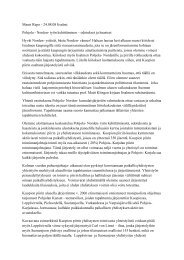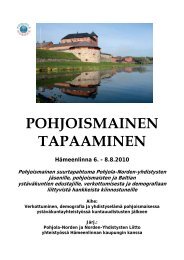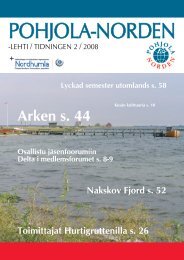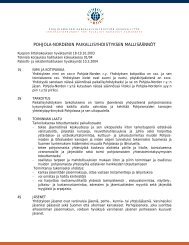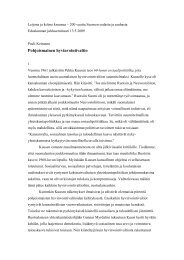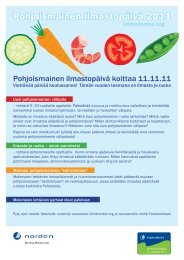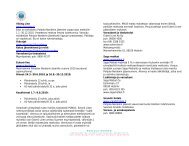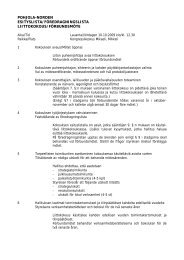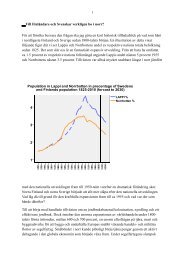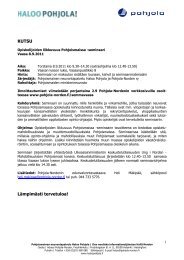The Nordic Model - Embracing globalization and sharing risks
The Nordic Model - Embracing globalization and sharing risks
The Nordic Model - Embracing globalization and sharing risks
Create successful ePaper yourself
Turn your PDF publications into a flip-book with our unique Google optimized e-Paper software.
USA<br />
Irel<strong>and</strong><br />
United Kingdom<br />
Portugal<br />
Greece<br />
Spain<br />
Luxembourg<br />
Italy<br />
Norway<br />
Netherl<strong>and</strong>s<br />
Austria<br />
Finl<strong>and</strong><br />
France<br />
Sweden<br />
Denmark<br />
Germany<br />
Belgium<br />
0 10 20 30 40 50 60<br />
70 %<br />
Figure 5.3<br />
Total tax wedge on labour in selected countries, 2003<br />
Source: Ministry of Taxation, Denmark (2004) .<br />
In general, it would be worthwhile to undertake the activity, <strong>and</strong><br />
without taxes this would take place; the employer would earn a<br />
profit of 40 <strong>and</strong> the worker would get a compensation of 100 (or<br />
they could share the surplus of 40 in some other way). But with a<br />
tax wedge of 60 per cent, the activity is either unprofitable for the<br />
employer or insufficiently rewarding for the employee (or both).<br />
<strong>The</strong> tax wedge prevents some activities from being undertaken<br />
(that would be worthwhile in the absence of taxation). <strong>The</strong> larger<br />
the tax wedge, the larger this effect is – increasing the tax wedge to,<br />
say, 65 per cent would imply that all activities yielding an output<br />
between 160 <strong>and</strong> 165 are no longer worthwhile.<br />
Actually, an increase in the tax wedge from 60 to 65 per cent<br />
harms economic activity more than an increase from 40 to 45<br />
per cent. 4 <strong>The</strong> important message here is that taxation of income<br />
does not leave economic activity <strong>and</strong> total income unchanged<br />
– the greater the tax, the smaller the total income generated in<br />
the economy. Moreover, this effect is stronger the higher the level<br />
of taxation at the outset. This implies a difficult policy dilemma:<br />
incomes are taxed to finance the welfare state, but higher taxes<br />
make the cake shrink.<br />
Welfare services: rising costs <strong>and</strong> increasing dem<strong>and</strong> · 95





